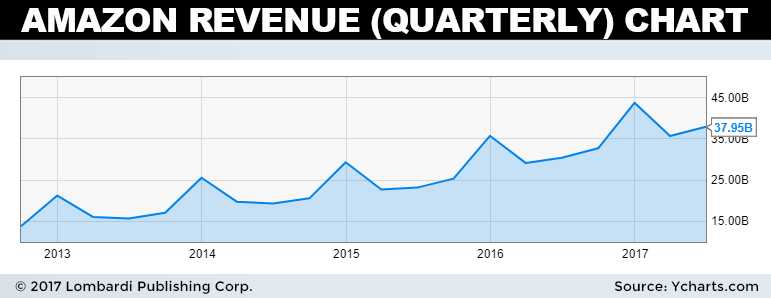Big Tech Corporate Profits Could Suffer If French President Has His Way
Upstart French President Emmanuel Macron has lashed out at “Anglo-Saxon” technology giants, urging a digital tax on America’s Big Tech behemoths. If he gets his way, corporate profits on pivotal market leaders could get hit. This will have negative consequences for stock markets in America.
Speaking at a European Summit in Estonia, Macron criticized American technology companies for distorting competition and acting against the common good. He urged his presidential colleagues to adopt a radical approach to taxing digital companies. Said Macron, “the dominant actors, the Anglo-Saxon ones especially, do not respect the rules of the game.” (Source: “Macron slams ‘Anglo-Saxon’ tech giants for distorting competition,” Financial Times, September 29, 2017.)
France is leading an effort to tax Big Tech on revenues rather than profits. This so-called “turnover tax,” backed by Germany, Italy, and Spain, has the potential to turn Big Tech’s business model on its head. Those affected would be companies such as Alphabet Inc (NASDAQ: GOOG), Facebook Inc (NASDAQ: FB), and Amazon.com, Inc. (NASDAQ: AMZN), among others.
So what could this tax look like?
Brussels is contemplating a model where smaller online companies report anti-competitive behavior from the goliaths, who will then be forced to pay a fine based on the amount and severity of infractions. Brussels obliged earlier this year, when it fined Alphabet (Google) a record €2.4 billion for manipulating its dominant position towards online shopping.
Can High Tech Valuations Withstand Profit Pressures?
In this “everything bubble” climate stock markets have been experiencing for some time, many sectors have appreciated. But I think it’s fair to say that Big Tech has led the way. Proof? The tech-heavy NASDAQ has seen the biggest gains of any major North American market. The NASDAQ is up over 500% from Great Recession lows, while the S&P 500 and Dow Jones Industrial Average have “only” gained in the mid-300s.
Investors can even justify paying nosebleed premiums for Big Tech stocks because earnings growth has been so impressive.
Take Amazon for example. Quarterly revenue growth has been robust, zigzagging upwards at breakneck speed. In June 2011, Amazon’s revenues were $9.913 billion; fast forward to the latest quarter, Amazon’s revenues are $37.96 billion. That’s almost a fourfold increase in six years.
Of course, it’s purchased other business during that time, which makes earnings accretive. But investors looking to justify a crazy 244 price-to-earnings (P/E) ratio can justify that valuation by arguing top-line revenue growth is increasing exponentially. Other Big Tech giants are in the same camp.
But what if revenues are about to hit a wall? What happens if world governments look to grab their own share of the tax revenue pie by claiming that Big Tech is anti-competitive or too large? It has the potential to stymie Big Tech corporate profits dead in their tracks.
The events no doubt cast a shadow on the earnings visibility of the growth-driving tech sector. Without earnings growth, further valuation expansion seems unlikely. Whether that means a stock market crash or otherwise, it won’t be positive for the market.







